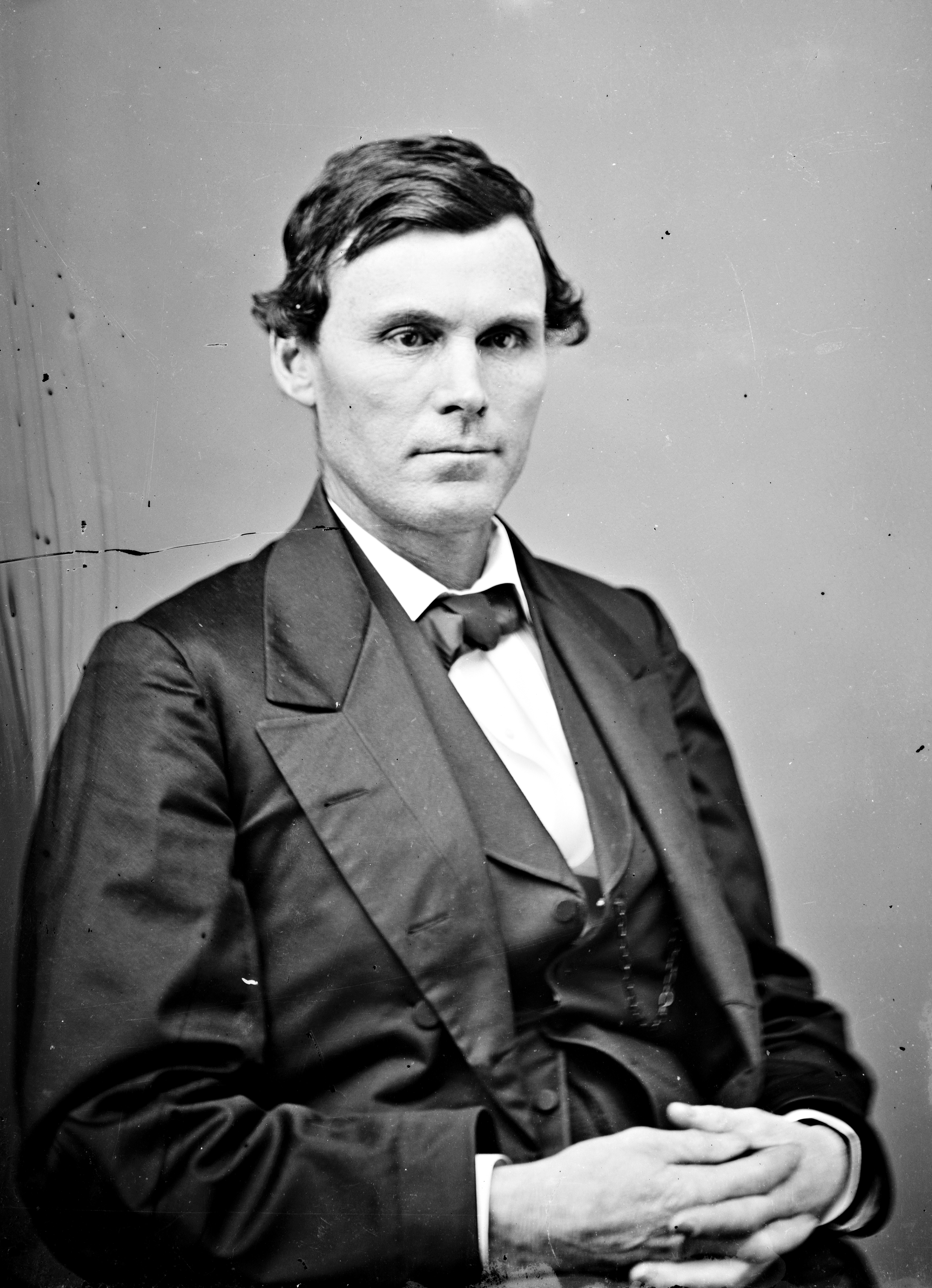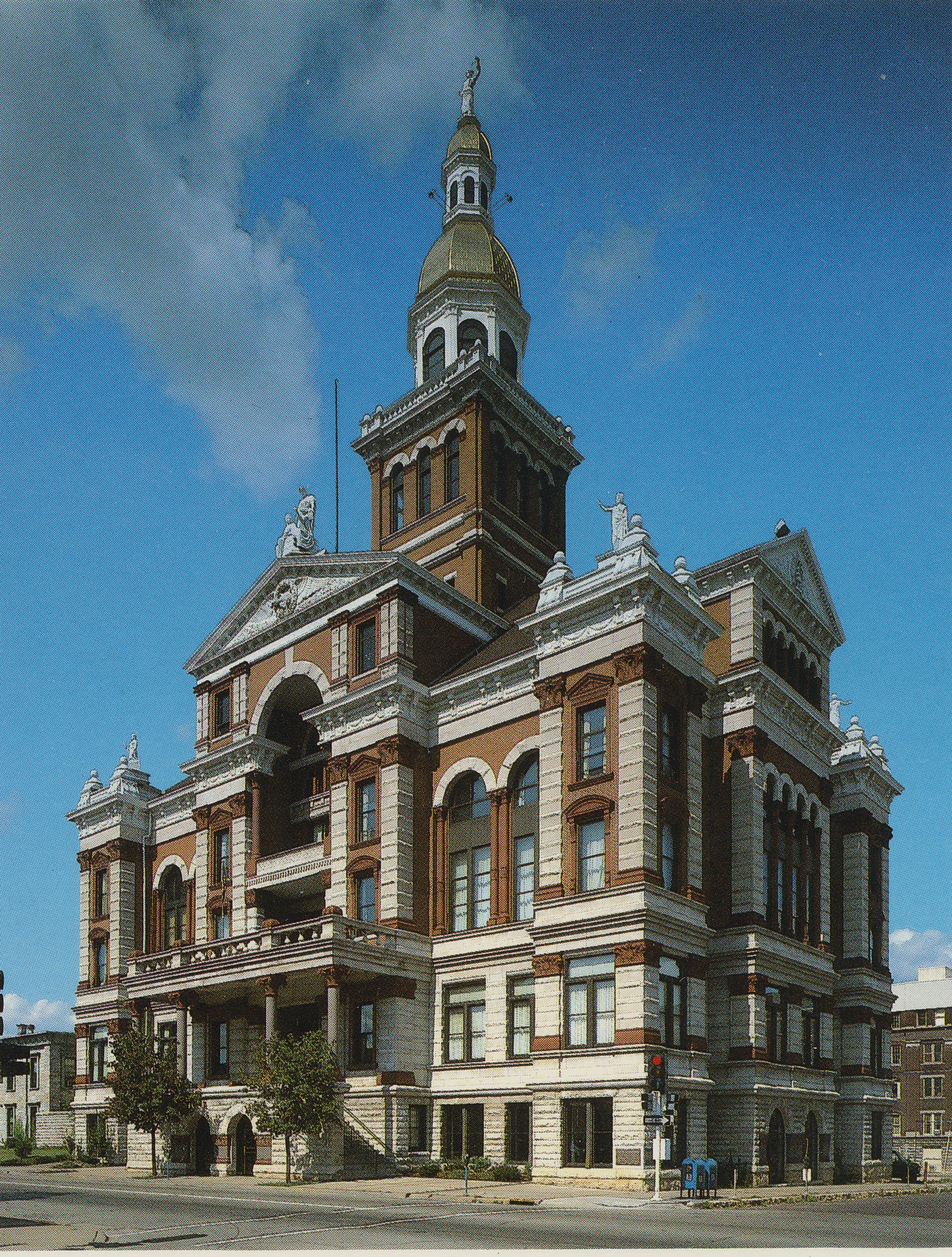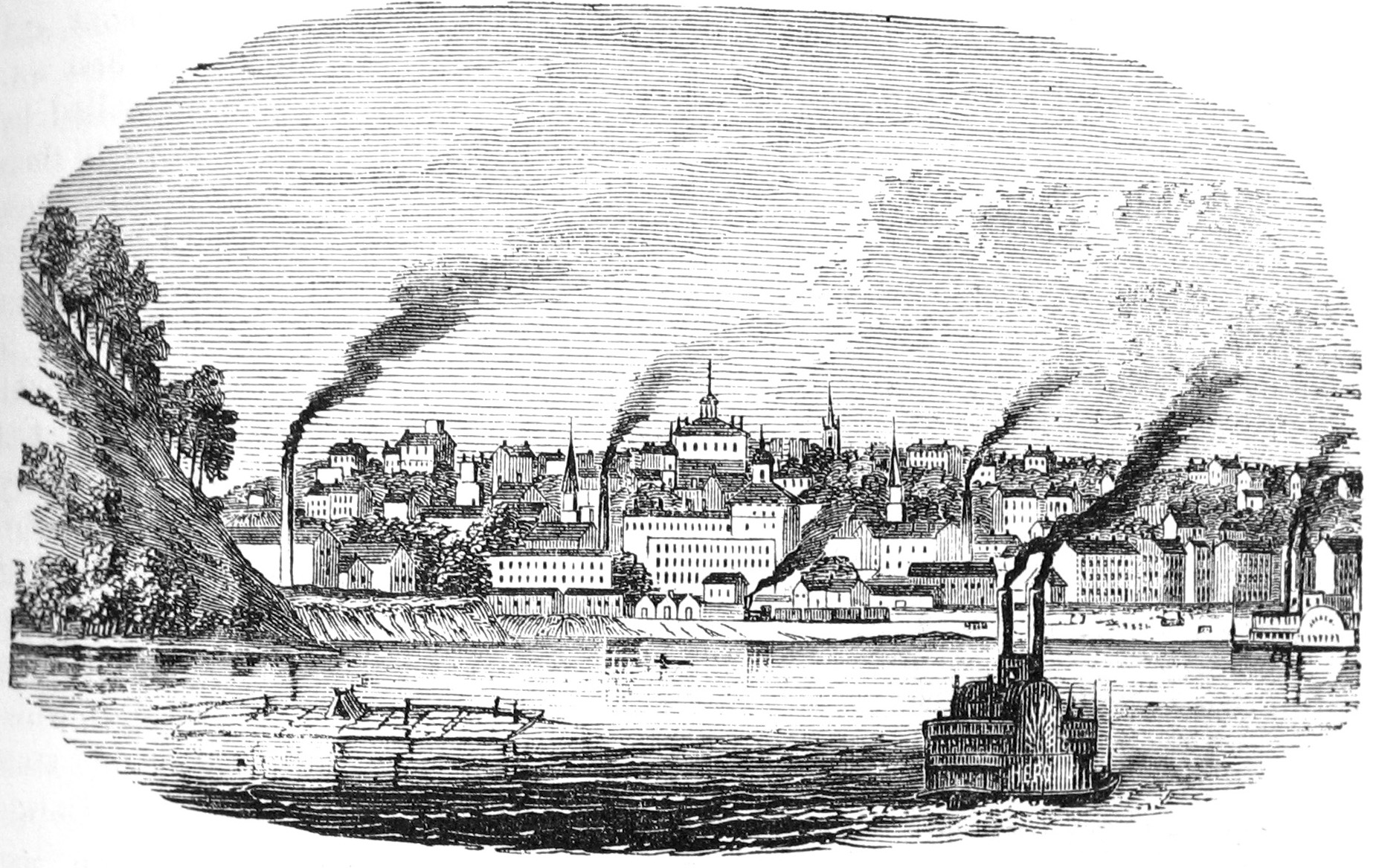|
William W. Chapman
William Williams Chapman (August 11, 1808October 18, 1892) was an American politician and lawyer in Oregon and Iowa. He was born and raised in Virginia. He served as a United States Attorney in Iowa when it was part of the Michigan and Wisconsin territories, and then represented the Iowa Territory in the United States House of Representatives. He later immigrated to the Oregon Country, where he served in the Oregon Territorial Legislature. After settling in Portland, he helped to found ''The Oregonian'' newspaper and promoted economic interests in the city. He also was involved with building Canyon Road near Portland, and fought in the Rogue River War in Oregon. In later years, he served in the Oregon Legislative Assembly and promoted the expansion of railroads from Portland. Chapman Square, a park in downtown Portland, is named for him and was built on land he sold to the city. Early life William Chapman was born in Clarksburg, Virginia, (now West Virginia) on August 11, 1808 ... [...More Info...] [...Related Items...] OR: [Wikipedia] [Google] [Baidu] |
United States House Of Representatives
The United States House of Representatives, often referred to as the House of Representatives, the U.S. House, or simply the House, is the Lower house, lower chamber of the United States Congress, with the United States Senate, Senate being the Upper house, upper chamber. Together they comprise the national Bicameralism, bicameral legislature of the United States. The House's composition was established by Article One of the United States Constitution. The House is composed of representatives who, pursuant to the Uniform Congressional District Act, sit in single member List of United States congressional districts, congressional districts allocated to each U.S. state, state on a basis of population as measured by the United States Census, with each district having one representative, provided that each state is entitled to at least one. Since its inception in 1789, all representatives have been directly elected, although universal suffrage did not come to effect until after ... [...More Info...] [...Related Items...] OR: [Wikipedia] [Google] [Baidu] |
Oregon Territorial Legislature
Oregon's Territorial Legislature was a bicameral legislative body created by the United States Congress in 1848 as the legislative branch of the government of the Oregon Territory. The upper chamber Council and lower chamber House of Representatives first met in July 1849; they served as the region's legislative body until Oregon became a state in February 1859, when they were replaced by the bicameral Oregon State Legislature. Ten annual sessions were held, with most starting in December and ending in February. During the sessions the capital of the territory was moved from Oregon City to Salem, then briefly to Corvallis, and back to Salem. Legislation included the creation of new counties, the renaming of old counties, and the authorization to hold the Oregon Constitutional Convention, among other acts. Membership in the Council remained at nine throughout the history of the body, while the House of Representatives membership increased from 17 to as high as 30 due to increas ... [...More Info...] [...Related Items...] OR: [Wikipedia] [Google] [Baidu] |
Pre-emption Right
A pre-emption right, right of pre-emption, or first option to buy is a contractual right to acquire certain property newly coming into existence before it can be offered to any other person or entity. It comes from the Latin verb ''emo, emere, emi, emptum'', to buy or purchase, plus the inseparable preposition ''pre'', before. A right to acquire existing property in preference to any other person is usually referred to as a ''right of first refusal''. Company shares In practice, the most common form of pre-emption right is the right of existing shareholders to acquire new shares issued by a company in a rights issue, usually a public offering. In this context, the pre-emptive right is also called subscription right or subscription privilege. It is the right but not the obligation of existing shareholders to buy the new shares before they are offered to the public. In that way, existing shareholders can maintain their proportional ownership of the company and thus prevent stock dilut ... [...More Info...] [...Related Items...] OR: [Wikipedia] [Google] [Baidu] |
Twenty-sixth United States Congress
The 26th United States Congress was a meeting of the legislative branch of the United States federal government, consisting of the United States Senate and the United States House of Representatives. It met in Washington, D.C. from March 4, 1839, to March 4, 1841, during the third and fourth years of Martin Van Buren's presidency. The apportionment of seats in the House of Representatives was based on the Fifth Census of the United States in 1830. Both chambers had a Democratic majority. Major events * 1839: The first state law permitting women to own property was passed in Jackson, Mississippi * January 19, 1840: Captain Charles Wilkes circumnavigated Antarctica, claiming what becomes known as Wilkes Land for the United States. * November 7, 1840: U.S. presidential election, 1840: William Henry Harrison defeated Martin Van Buren * February 18, 1841: The first ongoing filibuster in the United States Senate began and lasted until March 11 Major legislation * Party summary ... [...More Info...] [...Related Items...] OR: [Wikipedia] [Google] [Baidu] |
Twenty-fifth United States Congress
The 25th United States Congress was a meeting of the legislative branch of the United States federal government, consisting of the United States Senate and the United States House of Representatives. It met in Washington, D.C. from March 4, 1837, to March 4, 1839, during the first two years of Martin Van Buren's presidency. The apportionment of seats in the House of Representatives was based on the Fifth Census of the United States in 1830. Both chambers had a Democratic majority. Major events * March 4, 1837: Martin Van Buren became President of the United States * May 10, 1837: Panic of 1837 * January 6, 1838: First public demonstration of Samuel Morse's telegraph * May 26, 1838: Trail of Tears: The Cherokee removal began Major legislation * Territories organized * June 12, 1838: Iowa Territory was formed from the Wisconsin Territory. Party summary The count below identifies party affiliations at the beginning of the first session of this congress. Changes result ... [...More Info...] [...Related Items...] OR: [Wikipedia] [Google] [Baidu] |
Dubuque, Iowa
Dubuque (, ) is the county seat of Dubuque County, Iowa, United States, located along the Mississippi River. At the time of the 2020 United States Census, 2020 census, the population of Dubuque was 59,667. The city lies at the junction of Iowa, Illinois, and Wisconsin, a region locally known as the Dubuque area, Tri-State Area. It serves as the main commercial, industrial, educational, and cultural center for the area. Geographically, it is part of the Driftless Area, a portion of North America that escaped all three phases of the Wisconsin Glaciation. Dubuque is a tourist destination featuring the city's unique architecture and river location. It is home to five institutions of higher education, making it a center for culture and learning. Dubuque has long been a center of manufacturing, the local economy has also diversified to other areas in the 21st century. Alongside previously mentioned industries, the city has large health care, publishing, and financial service sectors. Hi ... [...More Info...] [...Related Items...] OR: [Wikipedia] [Google] [Baidu] |
Burlington, Iowa
Burlington is a city in, and the county seat of, Des Moines County, Iowa, United States. The population was 23,982 in the 2020 census, a decline from the 26,839 population in 2000. Burlington is the center of a micropolitan area, which includes West Burlington and Middletown, Iowa, and Gulfport, Illinois. Burlington is the home of Snake Alley, the most crooked street. History Prior to European settlement, the area was neutral territory for the Sac and Fox Native American tribes, who called it Shoquoquon (''Shok-ko-kon''), meaning Flint Hills. In 1803, President Thomas Jefferson organized two parties of explorers to map the Louisiana Purchase. The Lewis and Clark Expedition followed the Missouri River, while Lt. Zebulon Pike followed the Mississippi River. In 1805, Pike landed at the bluffs below Burlington and raised the United States Flag for the first time on what would become Iowa soil and recommended construction of a fort. The recommendation went unheeded. The Am ... [...More Info...] [...Related Items...] OR: [Wikipedia] [Google] [Baidu] |
Macomb, Illinois
Macomb is a city in and the county seat of McDonough County, Illinois, United States. It is situated in western Illinois, southwest of Galesburg. The city is about southwest of Peoria and south of the Quad Cities. A special census held in 2014 placed the city's population at 21,516. Macomb is the home of Western Illinois University. History Origin First settled in 1829 on a site tentatively named Washington, the town was officially founded in 1830 as the county seat of McDonough County and given the name Macomb after General Alexander Macomb, a general in the War of 1812. War veterans were given land grants in the Macomb area, which was part of the "Military Tract" set aside by Congress. In 1855 the Northern Cross Railroad, a predecessor to the Chicago, Burlington and Quincy Railroad, was constructed through Macomb, leading to a rise in the town's population. In 1899 the Western Illinois State Normal School, later Western Illinois University, was founded in Macomb. Repr ... [...More Info...] [...Related Items...] OR: [Wikipedia] [Google] [Baidu] |
Arthur B
Arthur is a common male given name of Brythonic origin. Its popularity derives from it being the name of the legendary hero King Arthur. The etymology is disputed. It may derive from the Celtic ''Artos'' meaning “Bear”. Another theory, more widely believed, is that the name is derived from the Roman clan '' Artorius'' who lived in Roman Britain for centuries. A common spelling variant used in many Slavic, Romance, and Germanic languages is Artur. In Spanish and Italian it is Arturo. Etymology The earliest datable attestation of the name Arthur is in the early 9th century Welsh-Latin text ''Historia Brittonum'', where it refers to a circa 5th to 6th-century Briton general who fought against the invading Saxons, and who later gave rise to the famous King Arthur of medieval legend and literature. A possible earlier mention of the same man is to be found in the epic Welsh poem ''Y Gododdin'' by Aneirin, which some scholars assign to the late 6th century, though this is still a ... [...More Info...] [...Related Items...] OR: [Wikipedia] [Google] [Baidu] |
Middletown, Virginia
Middletown is a town in Frederick County, Virginia, United States, in the northern Shenandoah Valley. The population was 1,265 at the 2010 census, up from 1,015 at the 2000 census. History Middletown was chartered on May 4, 1796. Some of the first documentation of early Middletown dates back to the late 18th century and is attributed to Dr. Peter Senseney and his wife Magdelen, two German settlers who had migrated from Pennsylvania. The town was originally known as "Senseney Town", a piece of land within the 17th Century Fairfax Grant and gifted to the allies for siding with England during the civil war in the 1600s. Belle Grove Plantation, about a mile southwest of Middletown, was first settled in about 1750, and its historic Federal-style manor house was completed in 1797. Middletown was the site of numerous military operations in the American Civil War including the Battle of Cedar Creek, fought just south of the town. The area where this battle occurred has been protected ... [...More Info...] [...Related Items...] OR: [Wikipedia] [Google] [Baidu] |
Reading Law
Reading law was the method used in common law countries, particularly the United States, for people to prepare for and enter the legal profession before the advent of law schools. It consisted of an extended internship or apprenticeship under the tutelage or mentoring of an experienced lawyer. The practice largely died out in the early 20th century. A few U.S. states still permit people to become lawyers by reading law instead of attending law school, although the practice is rare. In this sense, "reading law" specifically refers to a means of entering the profession, although in England it is still customary to say that a university undergraduate is "reading" a course, which may be law or any other. __TOC__ History United States In colonial America, as in Britain in that day, law schools did not exist at all until Litchfield Law School was founded in 1773. Within a few years following the American Revolution, some universities such as the College of William and Mary and the Un ... [...More Info...] [...Related Items...] OR: [Wikipedia] [Google] [Baidu] |
Oregon Legislative Assembly
The Oregon Legislative Assembly is the state legislature for the U.S. state of Oregon. The Legislative Assembly is bicameral, consisting of an upper and lower house: the Senate, whose 30 members are elected to serve four-year terms; and the House of Representatives, with 60 members elected to two-year terms. There are no term limits for either house in the Legislative Assembly. Each Senate district is composed of exactly two House districts: Senate District 1 contains House Districts 1 and 2, SD 2 contains HD 3 and HD 4, and so on. (Maps of Senate districts can be found in the Oregon State Senate article.) Senate districts contain about 127,700 people, and are redrawn every ten years. The legislature is termed as a "citizens' assembly" (meaning that most legislators have other jobs.) Since 1885, its regular sessions of up to 160 days occurred in odd-numbered years, beginning on the second Monday in January. Effective 2012, the legislature moved into an annual session, with ... [...More Info...] [...Related Items...] OR: [Wikipedia] [Google] [Baidu] |




